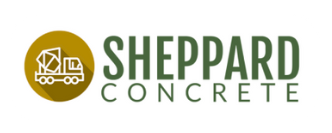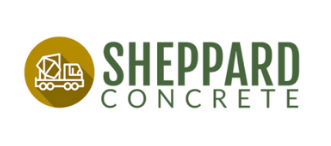Cold Weather Concrete Care: Keeping Commercial Parking Lots Safe and Strong All Winter
Oklahoma winters can be tough on commercial concrete. Temperature swings, freezing moisture, and heavy traffic all create stress on large concrete slabs — especially parking lots. If you manage a business park, retail center, HOA community, office building, or commercial property in OKC, Norman, or Moore, winter maintenance is one of the best ways to protect your investment and avoid major spring repairs. Here’s what every property owner should know about keeping commercial parking lots safe, durable, and winter-ready.
1. How Temperature Swings Affect Large Concrete Slabs
Commercial parking lots cover a lot of surface area, which means they absorb temperature changes quickly. In Oklahoma, winter often brings:
- Freezing nights and warm afternoons
- Moisture followed by sudden temperature drops
- Ice that melts and re-freezes multiple times
This freeze–thaw cycle causes the concrete to expand and contract. Over time, that leads to:
- Cracks
- Surface spalling
- Joint separation
- Uneven areas and trip hazards
Large slabs take more stress than residential concrete, which is why commercial lots need stronger winter protection.
2. Moisture: The #1 Threat to Winter Concrete
When water penetrates the surface of a parking lot and freezes, it expands inside the concrete. After it thaws, it leaves behind weakened spots that grow with each cycle.
Moisture problems often come from:
- Poor drainage
- Clogged or damaged storm drains
- Water pooling in low areas
- Snow/ice melt that refreezes overnight
A parking lot inspection can reveal early signs of moisture issues before they turn into large structural problems.
3. De-Icing Best Practices for Commercial Parking Lots
Many commercial properties use de-icing products to keep lots safe — but
not all ice melts are concrete-safe.
Avoid using:
- Ammonium sulfate
- Ammonium nitrate
These chemicals rapidly break down concrete and cause surface flaking.
Use these instead:
- Calcium magnesium acetate (CMA) — safest for concrete
- Sand — for traction without chemical wear
- Magnesium chloride — less damaging than standard rock salt
And always use plastic blades or rubber-edged plows to avoid scraping and chipping the concrete surface.
4. Why Small Repairs Now Prevent Major Spring Damage
Winter is when small cracks turn into expensive problems. Water seeps in, freezes, expands, and forces cracks to widen.
Early maintenance helps avoid:
- Full slab replacement
- Major patching
- Structural settling
- Liability from trip hazards
Small winter repairs include:
- Crack sealing
- Joint repair
- Patching low spots
- Minor resurfacing
- Improving drainage flow
These services cost far less than wide-area repairs in spring.
5. Cost-Saving Benefits of Early Prep and Maintenance
Proactive winter care protects commercial properties from:
- Liability risks
- Costly structural damage
- Major spring repairs
- Premature concrete aging
- Customer safety issues
Well-maintained parking lots last years longer and cost significantly less to repair over time. For busy commercial areas in OKC, Moore, and Norman, winter prep is a smart, cost-effective safeguard for your business or community.
Need Commercial Parking Lot Winter Maintenance?
Whether your property needs drainage improvements, winter sealing, crack repair, concrete inspection, or full parking lot maintenance, Sheppard Concrete Co. can help keep your lot safe and strong all winter. We know Oklahoma weather, Oklahoma soil, and the stress commercial concrete takes during winter.

